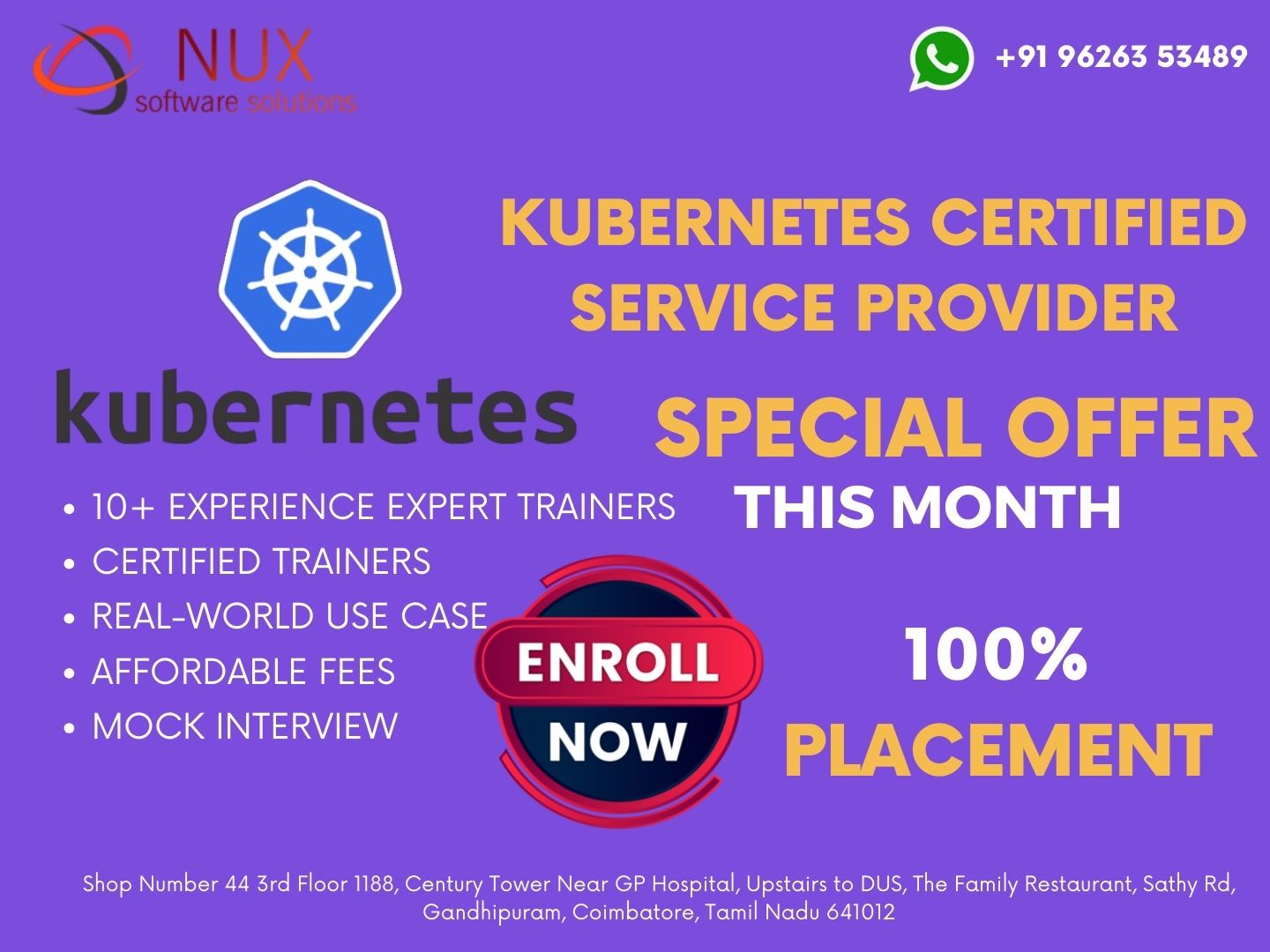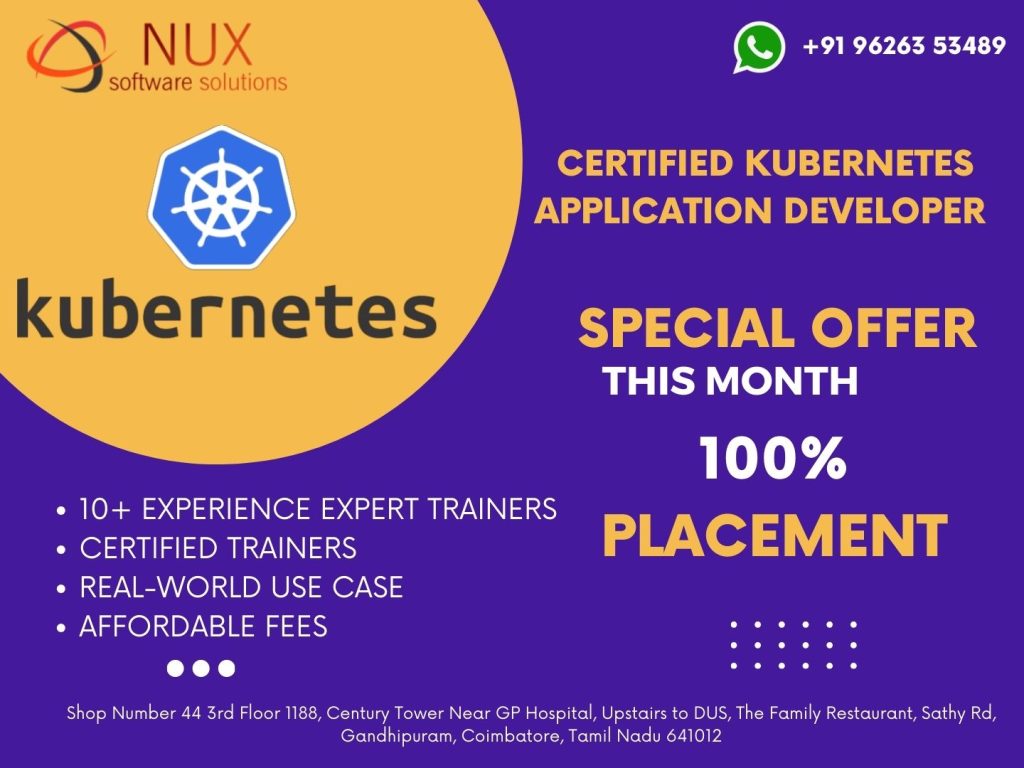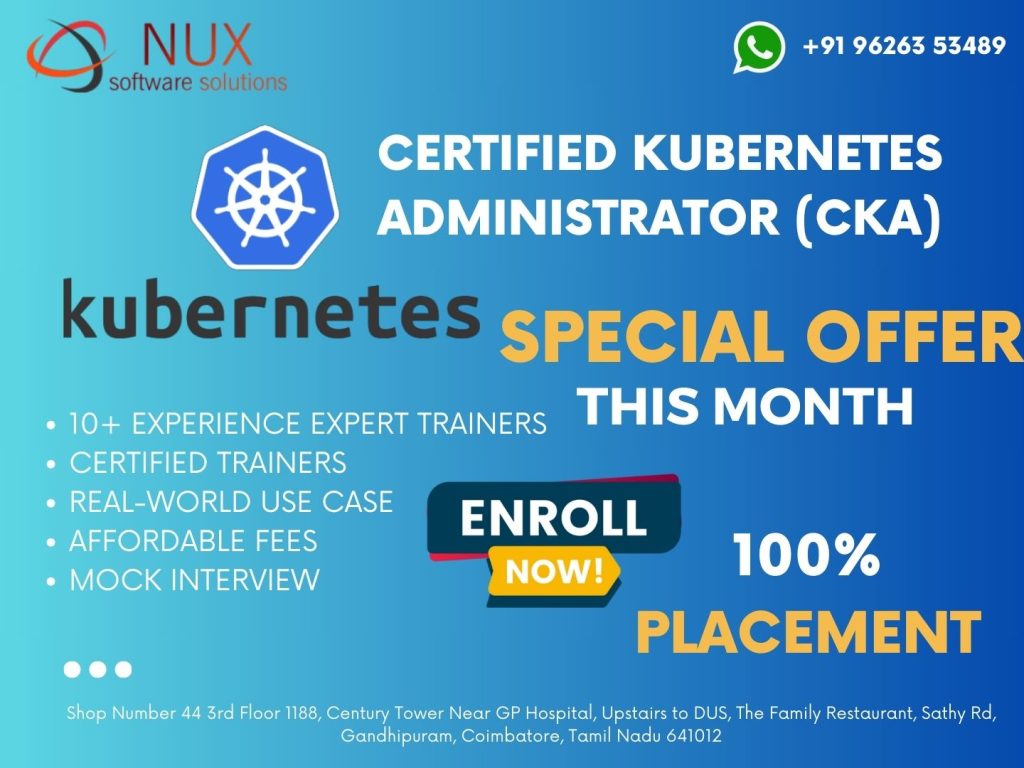Kubernetes Certified Service Provider

Kubernetes Certified Service Provider (KCSP) – Training & Certification in Coimbatore
Build and Manage Kubernetes Solutions with Expert Guidance
The Kubernetes Certified Service Provider (KCSP) certification is globally recognized as a benchmark of expertise in Kubernetes infrastructure, consulting, support, and training services. This course is tailored for IT professionals and teams looking to gain a deep understanding of container orchestration and deliver Kubernetes-based solutions with confidence and efficiency.
Our KCSP training in Coimbatore is structured to help individuals and organizations meet the CNCF (Cloud Native Computing Foundation) requirements to become certified service providers. Whether you’re managing enterprise-level cloud-native apps or designing scalable Kubernetes environments, this program equips you with all the necessary skills and insights.
What This Course Covers
Comprehensive understanding of Kubernetes architecture and core concepts
Deploying, configuring, and managing Kubernetes clusters
Role-based access control (RBAC), secrets, and service accounts
Container networking, persistent storage, and Helm charts
Monitoring, logging, and troubleshooting in production environments
CI/CD integration and security best practices
Real-world Kubernetes deployment projects and performance optimization
Guidance on meeting the requirements to become a Kubernetes Certified Service Provider
Why Choose Our KCSP Training in Coimbatore?
Industry-Experienced Trainers: Learn from certified Kubernetes and DevOps experts
Hands-On Labs: Real-time practice with Kubernetes clusters and cloud environments
Updated Curriculum: Covers the latest CNCF recommendations and tools
Flexible Learning Modes: Online and classroom training options available
KCSP Readiness Support: We help your team align with CNCF’s KCSP qualification
Who Should Take This Course?
Cloud administrators and engineers
DevOps professionals
Site Reliability Engineers (SREs)
IT service companies aiming for KCSP recognition
Teams involved in Kubernetes deployment and support services
Career Opportunities
After completing this program, learners can pursue roles such as:
Kubernetes Administrator
Cloud Native Engineer
DevOps Consultant
Kubernetes Support Engineer
Cloud Infrastructure Architect
Organizations completing this training also gain a competitive edge in applying for the KCSP badge, boosting trust and visibility in the enterprise cloud service space.
Take the next step toward becoming a recognized Kubernetes expert or a certified service provider. Master Kubernetes with structured training and earn a mark of excellence in cloud-native services.
Kubernetes Certified Service Provider Syllabus
Modules
Chapter 1 :
Cluster Architecture, Installation & Configuration
Manage role based access control (RBAC)
Use Kubeadm to install a basic cluster
Manage a highly-available Kubernetes cluster
Provision underlying infrastructure to deploy a Kubernetes cluster
Perform a version upgrade on a Kubernetes cluster using Kubeadm
Implement etcd backup and restore
Chapter 2 :
Workloads & Scheduling
Understand deployments and how to perform rolling update and rollbacks
Use ConfigMaps and Secrets to configure applications
Know how to scale applications
Understand the primitives used to create robust, self-healing, application deployments
Understand how resource limits can affect Pod scheduling
Awareness of manifest management and common templating tools
Chapter 3 :
Services & Networking
Understand host networking configuration on the cluster nodes
Understand connectivity between Pods
Understand ClusterIP, NodePort, LoadBalancer service types and endpoints
Know how to use Ingress controllers and Ingress resources
Know how to configure and use CoreDNS
Choose an appropriate container network interface plugin
Chapter 4 :
Storage
Understand storage classes, persistent volumes
Understand volume mode, access modes and reclaim policies for volumes
Understand persistent volume claims primitive
Know how to configure applications with persistent storage
Chapter 5 :
Troubleshooting
Evaluate cluster and node logging
Understand how to monitor applications
Manage container stdout & stderr logs
Troubleshoot application failure
Troubleshoot cluster component failure
Troubleshoot networking


